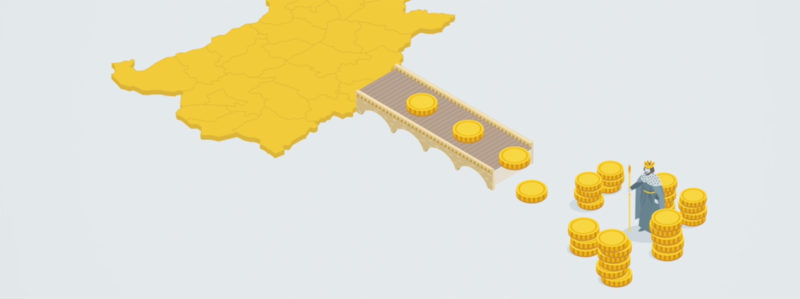

The banking collapse will be announced on a Friday
Another US bank has failed, central banks offer emergency credit lines and stocks fall. Governments and regulatory agencies assure us that we don’t have to worry about our money and the stability of the banking sector. But should we trust them? What do they say behind closed doors?
The Federal Deposit Insurance Corporation (FDIC) is a US federal agency that was created in 1933 in the aftermath of the Great Depression to protect bank deposits and prevent mass bank failures. Currently, the FDIC insures up to USD 250,000 per depositor, per insured bank, for each account ownership category.
Inside this federal agency we find the Systemic Resolution Advisory Committee (SRAC), an advisory committee established in 2011 by the FDIC as part of the Dodd-Frank Wall Street Reform and Consumer Protection Act, a law that was passed in response to the 2008 financial crisis and which introduced a series of measures to regulate the financial sector and prevent future collapses of the system.
The SRAC assists in the management of potential failures of the country’s largest banks and is made up of financial industry experts who advise the FDIC on the development of plans of action in the event of a large-scale banking collapse. The committee comprises members from different sectors of the economy, including representatives from financial regulators, banks, insurance, mutual funds and other entities.
On a need-to-know basis
Members of the SRAC meet regularly to discuss and make recommendations to the FDIC on how to address problems that a financial institution may be experiencing. They provide advice on issues such as resolution planning, identification of a bank’s assets and liabilities, communication with creditors and other related issues to help ensure the stability of the bank and the banking ecosystem. They also establish a plan of action in the event of a possible banking crisis, agreeing on the information to be provided to the public to avoid a collapse of the system.
Some of these meetings are open to the public via webcast and others are held in private, behind closed doors. One of the objectives of the last public meeting, which took place last November, seems to be to avoid widespread panic in the face of a banking crisis that could lead to a massive withdrawal of deposits by people worried about their money. It should be borne in mind that the money we have in the bank is governed by a fractional-reserve banking system, in which only a fraction of the deposits, 1% in the case of the eurozone, are required to be available for withdrawal.
In this context, we should remember that in order to avoid a collapse of the financial system during a banking crisis, the first option is to bail out certain institutions with taxpayers’ money, i.e. an external bailout. But there is also a second option known as an internal bailout or bail-in, whereby the money from shareholders, bondholders and customers with uninsured deposits – amounts above 100,000 euros in the case of the EU – is used to save the bank from falling into bankruptcy. As the committee points out, bank debt today is not systematically protected, and if it gets out of hand, the whole system collapses.
This happened in Cyprus during the 2008 financial crisis, when the government, following the instructions of the Troika (EU, ECB and IMF), confiscated citizens’ uninsured deposits to liquidate and restructure banks, causing a two-week bank shutdown to avoid a likely bank run. Hence, the importance that SRAC places on limiting communication with the general public, lest people want to withdraw their money from these banks before it completely disappears. Privileged information that, according to the committee, must be reserved for a select minority, presumably themselves or the like, who must be privy to it.
Friday news dump
The internet and 24-hour news coverage have not done away with the common PR practice of releasing bad news on a Friday to avoid major media coverage. At least this is the view of the committee’s panel when it points out that when preparing a statement detailing the tough measures that would be applied in the face of a banking crisis it is preferable to release the information “on a Friday, or ideally on a Friday night, so that people are in a position to receive it, understand it and say yeah, that works.”
Perhaps most surprising, or not, are the statements of Gary Cohn, former President and Chief Operating Officer of Goldman Sachs, when he explains that “you have to think about the unintended consequences of taking a public that has more faith and confidence in the banking system than maybe people in this room do (laughter from the audience) that, we want them to continue to have full faith and confidence in the banking system”.
One might think that the banks and regulatory agencies are aware a collapse is coming, but have little interest in letting the public know because they want to use people’s deposits to bail out these banks. Maybe we should know better after what happened during the 2008 crisis or with the failure of Silicon Valley Bank in March this year, when only a select minority who were informed of the seriousness of the situation were able to get their money out in time, but as Hegel said, “The only thing we learn from history is that we do not learn from history”.
If you want to discover the best option to protect your savings, enter Preciosos 11Onze. We will help you buy at the best price the safe-haven asset par excellence: physical gold.
Leave a Reply
You must be logged in to post a comment.





Jo, als bancs de l’Ibex, ni un euro. Ho tinc clarisim.
T’entenem, Jordi, és una bona decisió personal, i moltes gràcies pel teu comentari.
Res a canviar, segueixen jugant amb la gent, estem ben apanyats 🤬🤬
És així mateix, ens fan anar cap allà a on van els seus interessos. És impossible garantir una democràcia si qui governa (als ajuntaments, diputacions, comunitats autònomes o estat), fan veure que tot es fa segons interessos del poble, quan en realitat estan moguts pels interessos de l’Ibex 35, del Foro Davos, de les grans elits, i del poder que està a l’ombra…, que els compra i els hi diu el que s’ha de fer a cada moment i seguint una agenda ja marcada i programada…. Moltes gràcies pel teu comentari, Jesús Manel!!!
gràcies
Gràcies a tu, Joan!!!
Molt bon article, gràcies!!!!
Celebrem que t’hagi agradat, Manel!!!
👌
Gràcies, Carles!!!